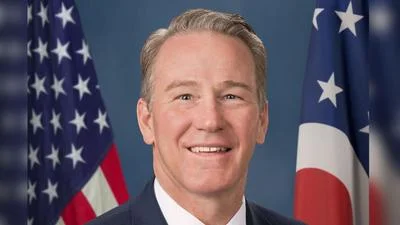Dean Rieck, Executive Director at Buckeye Firearms Association | LinkedIn
Dean Rieck, Executive Director at Buckeye Firearms Association | LinkedIn
Citigroup has announced a shift in its policy regarding firearms, stating it will no longer maintain a specific policy related to firearms sales by retail clients and partners. This marks a change from its 2018 stance when the bank imposed restrictions on companies that did not limit Second Amendment rights, such as selling standard-capacity magazines or selling firearms to individuals aged 18-20.
In 2018, Citigroup Executive Vice President of Global Public Affairs Ed Skyler stated that the bank's policy aimed to encourage "common-sense" gun control measures and expressed dissatisfaction with political inaction on gun issues. The policy was intended to promote best sales practices as part of prudent risk management but did not address firearm manufacturing.
U.S. Senator John Kennedy (R-Louisiana) and other lawmakers criticized Citigroup's previous policies, arguing they discriminated against law-abiding businesses and infringed on Second Amendment rights. Kennedy highlighted Citigroup's reliance on taxpayer-backed guarantees during financial crises and urged the bank to focus on compliance with U.S. laws instead.
Efforts to counteract corporate policies perceived as anti-gun have been ongoing, with legislation like the Firearm Industry Non-Discrimination Act (FIND Act) introduced by U.S. Rep. Jack Bergman (R-Michigan) and supported by several states. The Fair Access to Banking Act, reintroduced by Sen. Kevin Cramer (R-North Dakota), seeks to prevent banks from denying services based on political motivations.
The National Shooting Sports Foundation (NSSF) expressed cautious optimism about Citigroup's announcement, with Senior Vice President Larry Keene stating, "We are guardedly optimistic." The NRA also welcomed the change, noting that previous policies were influenced by activist pressure.
Citigroup emphasized that its updated policy aligns with non-discrimination principles based on traits such as race and religion. However, it reiterated hopes for communities and lawmakers to continue addressing gun violence prevention.
The impact of this policy change remains uncertain, as stakeholders await further developments while advocating for legislative measures like the FIND Act and Fair Access to Banking Act.






 Alerts Sign-up
Alerts Sign-up